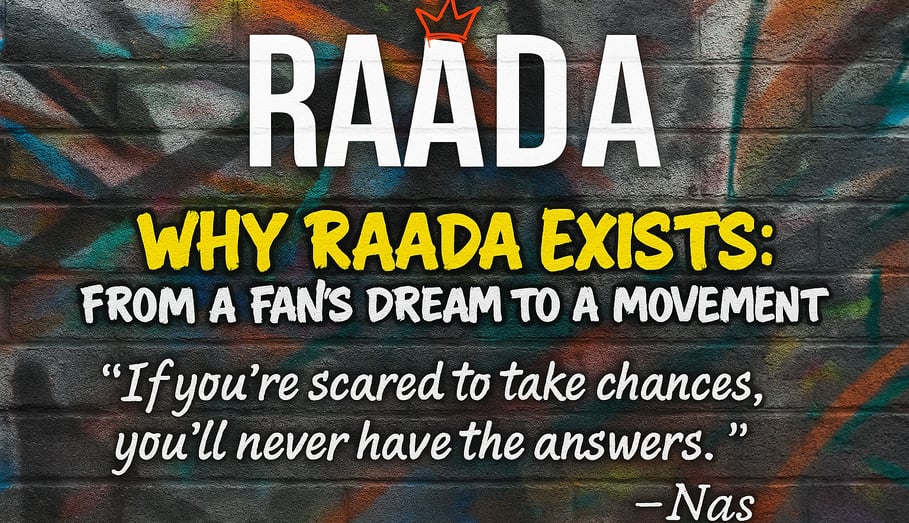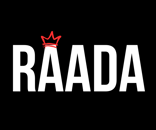
Why RAADA Exists: From a Fan’s Dream to a Movement
RAADA exists to offer a mic — not a miracle. What we hope to offer is a starting point, a moment to be seen, and maybe, a little push to keep going.
RAADA
6/27/20252 min read
Hip-hop isn’t just music — it’s a language, a rebellion, and a way to exist boldly in the world. For many of us in India, especially those who grew up watching the rise of Desi Hip-Hop (DHH), it began with admiration. But somewhere between the beats and the bars, something deeper started to grow: a cultural shift. RAADA was born from that shift — through the lens of a fan who realized that Indian streets weren’t just listening to hip-hop, they were creating it.
Hip-hop as a culture began in the 1970s in the Bronx, New York — an expressive outlet for underrepresented communities. Over time, it grew into a worldwide movement built on four core elements: rap, DJing, breakdancing, and graffiti. As it spread globally, different cultures added their flavor. France emphasized lyricism, Korea added cinematic flair, Africa contributed raw rhythm, and Asia introduced multilingual expression. When hip-hop reached India, it found a landscape already rich in dialects, storytelling, and creative rebellion..
India’s early interaction with hip-hop began with entertainers like Baba Sehgal, but the real shift came with the rise of Divine, Raftaar, Naezy, Emiway Bantai, KR$NA, and many other artists who rooted their rhymes in everyday struggles and street life. Desi Hip-Hop (DHH) suddenly moved from the background into the spotlight.
Today, hip-hop is not confined to one city. Mumbai became the home of gully rap. Delhi emerged as a battleground for lyrical and poetic rap. The Northeast developed strong underground scenes, while the South produced vibrant regional rap in Tamil, Telugu, and Kannada. Punjab fused hip-hop with folk energy. From mobile recordings in chawls to viral cyphers, DHH and Indian Hip-Hop (IHH) have undeniably become a core part of India's modern music scene.
But even with this momentum, a significant gap remains. Countless rappers across India — full of originality and authenticity — never get to step beyond their personal circles or social media. Their language, flow, and stories stay locked to local screens.
That’s where RAADA comes in — not as a solution, but as a starting point.
RAADA (Rappers Adda) didn’t start as a brand — it started with a thought: “What if every rapper got just one moment to feel like they were truly on stage?” We observed. We listened. We organized our first major concert — Azadi Haq Se, where over 1,000 people showed up to celebrate independent voices. That event was proof of concept: India is listening.
Moving forward, we are working on ideas like workshops, small jam sessions, and online contests — designed to encourage learning and exposure. We also aim to share basic guidance around social media use, independent artist rights, and how to approach music industry platforms. These are not promises — they are efforts in progress.
RAADA exists to offer a mic — not a miracle. We’re not here to promise fame or success. What we hope to offer is a starting point, a moment to be seen, and maybe, a little push to keep going.
"If you’re scared to take chances, you’ll never have the answers." – Nas


Don't miss out on exclusive behind-the-scenes access, early demos, live streams and other benefits by subscribing to our newsletter.
